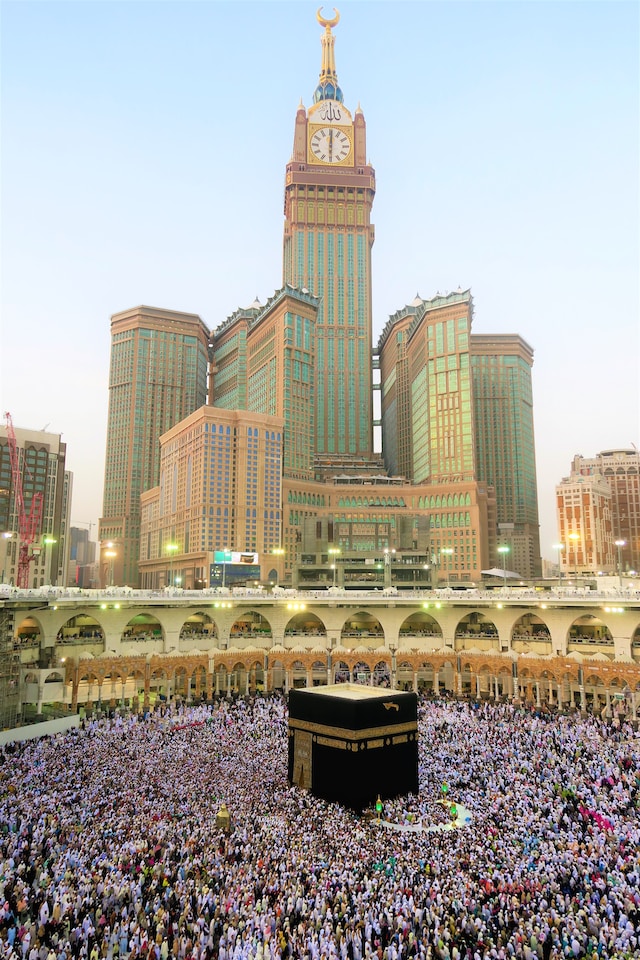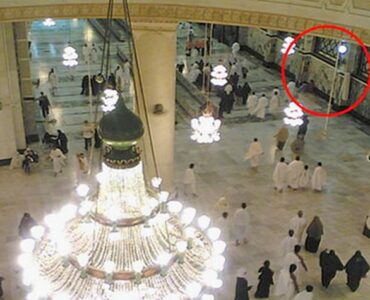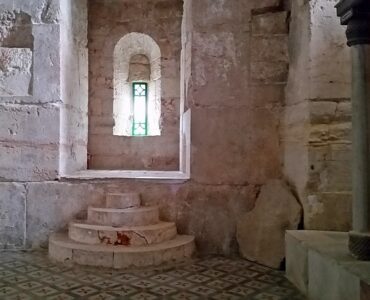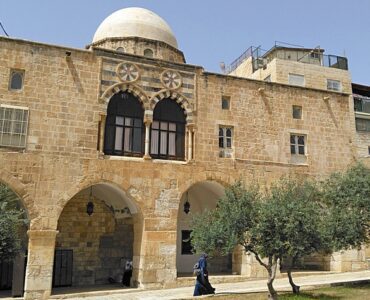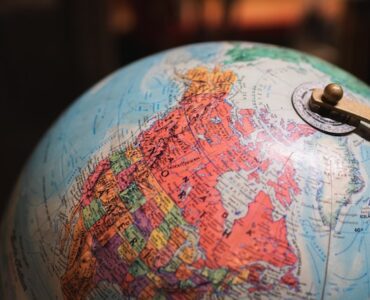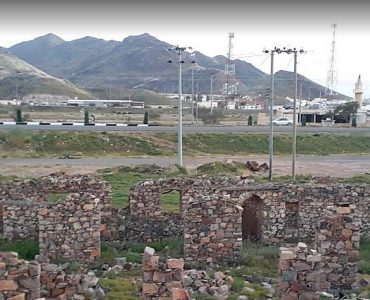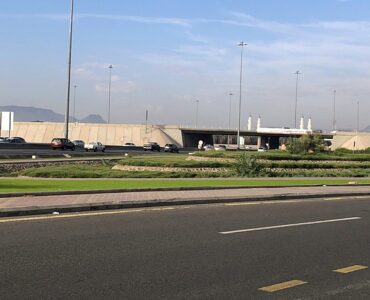Mecca and Medina are the two most important cities in the Islamic world, and millions of Muslims from around the world visit these cities each year to perform Hajj or Umrah.
However, non-Muslims are not allowed to enter Mecca, but are allowed to visit Madinah. This raises a lot of questions for people who wish to visit Mecca or Medina, especially for tourists and people of other religions.
Why Are Non-Muslims Not Allowed in Mecca or Madina?
When the question arises, ‘Can non-Muslims go to Mecca‘ the answer is No.
Non-Muslims are not allowed to enter the holy cities of Mecca in Saudi Arabia. The reasons for this restriction are deeply rooted in the Islamic faith and history.
Mecca and Medina are considered the holiest cities in Islam and are revered by Muslims worldwide. Mecca is home to the Kaaba, the first house of worship dedicated to the one true God, Allah. It is also the site of the annual Hajj pilgrimage, which is one of the five pillars of Islam and mandatory for every able-bodied Muslim who can afford it.
The Quran, the holy book of Islam, states that Mecca is a sanctuary that is reserved exclusively for Muslims and non-Muslims cannot vsit Mecca.
It says in the Quran,
“O you who have believed, indeed the polytheists are unclean, so let them not approach al-Masjid al-Haram after this, their [final] year” (9:28). This Quran verse is interpreted by Islamic scholars as a commandment to keep non-Muslims out of Mecca.
Furthermore, the Prophet Muhammad (SAW) declared that Mecca and Medina are sacred lands that are not to be polluted by non-Muslims.
He said,
“No unbeliever may enter Mecca. No one may circumambulate the Kaaba naked or perform the pilgrimage naked” (Sahih Muslim, 1355).
This restriction on non-Muslims entering Mecca has been in place for centuries and is strictly enforced by the Saudi Arabian government. Non-Muslims who attempt to enter Mecca can face severe consequences, including imprisonment and deportation.
The rationale behind this ban is to preserve the sanctity and purity of Mecca as holy site for Muslims. Allowing non-Muslims to enter Makkah could potentially lead to the desecration of these sacred sites and compromise their spiritual significance for Muslims.
In addition to the religious and cultural reasons, there are also security concerns that justify the ban on non-Muslims entering Mecca. The Saudi Arabian government takes the responsibility of protecting the holy cities and their visitors very seriously. It believes restricting access to these cities is necessary to ensure their safety.
How Do They Check if You Are Muslim in Mecca?
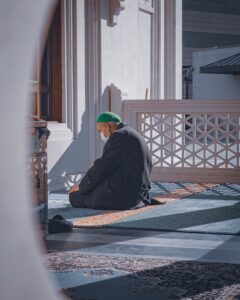

The passport will be checked at the arrival registration counter at airport when arriving in Saudi Arabia, and if the passport has any visa stamps from Israel, it will be deemed invalid.
Additionally, non-Muslims are not allowed to apply for the special Hajj or Umrah visas, which are required to enter Makkah and Medina.
Furthermore, there are checkpoints and barriers set up on the roads leading to Mecca to ensure that only Muslims enter the city.
At these checkpoints, visitors will be asked to show their Hajj or Umrah visas as well as their ID cards, which will indicate their religion.
Additionally, there are officers who will be observing the visitors’ behavior and dress to ensure that they are adhering to Islamic norms and customs.
What if I’m a Tourist Visiting Saudi Arabia?
If you are a non-Muslim tourist visiting Saudi Arabia, you will not be allowed to enter the holy citiy of Makkah. However, you can still visit other parts of the country, such as Madina, Riyadh or Jeddah, and experience the culture and hospitality of the Saudi people.
The government has also started promoting tourism in the country, and there are many tourist attractions that you can visit.
Can a Revert/Converted Muslim Go to Mecca?
Yes, a revert Muslims can of course go to Mecca.
However, it is important to note that the Saudi Arabian government has implemented strict rules and regulations for Hajj and Umrah pilgrims, and you must follow these rules to perform the pilgrimage.
Can a Christian Enter Mecca?
No, Christians are not allowed to enter Mecca. According to Islamic teachings, Christians are considered to be polytheists, and they are not allowed to enter the holy cities.
However, there have been reports of some non-Muslims being allowed to enter the cities for diplomatic or business reasons, but these are rare cases.
Can a Hindu Enter Mecca?
No, Hindus are not allowed to enter Mecca or Medina. Hindus are considered to be idolaters, and according to Islamic teachings, idolaters are not allowed to enter the holy cities.
However, there have been some exceptional cases of Hindus being allowed to enter Mecca for diplomatic or business reasons.
Can a Jew Enter Mecca?
No, Jews are not allowed to enter Mecca. The Saudi Arabian government strictly prohibits non-Muslims from entering the holy city of Mecca, and this includes Jews.
This rule is in place to preserve the sanctity and purity of the holy sites for Muslims and to prevent any potential harm to the religious and cultural identity of the city.
Is There an Age Limit for Hajj?
There is no specific age limit for Hajj, but the pilgrim must be physically and financially capable of performing the journey. However, due to safety concerns, the Saudi government has set the minimum age for performing Hajj at 12 years.
Elderly people and those with underlying health conditions are advised to consult their doctors before embarking on the Hajj journey.
What Happens if a Non-Muslim Enters Mecca?
If a Non-Muslim is found entering Mecca, they will be arrested and deported back to their country.
The Saudi government takes the ban on non-Muslims entering Mecca seriously, and violators can face severe punishment, including imprisonment and fines.
Incidents When Non-Muslims Entered Mecca
There have been instances in the past where non-Muslims have entered Mecca. In 1979, a group of armed militants led by Juhayman al-Otaybi took control of the Grand Mosque in Mecca.
The militants were from Saudi Arabia and Yemen, and they believed that the ruling Saudi monarchy had become corrupt and unIslamic.
The Saudi government eventually regained control of the mosque after a two-week siege, during which many people were killed or injured. This incident highlighted the potential security risks that non-Muslims could pose if they were allowed to enter Mecca.
In 2002, an American Jew and TV journalist in Israel named Gil Tamary secretly entered Mecca to record footage for a travelogue.
Despite the strict enforcement of the ban on non-Muslims in Mecca, Tamary managed to gain entry along with only 17 other non-Muslims known to have done so in recent decades.
The incident caused an uproar among Muslims, Israelis, and Westerners alike, as they feared it would increase hostility. The Saudi government pressed criminal charges against Tamary and his Saudi driver.
Tamary later issued an apology and claimed his intention was to highlight the significance of Mecca and the beauty of the religion to promote religious tolerance.
These incidents demonstrate the importance that Muslims place on the sanctity of Mecca and the need for strict measures to prevent non-Muslims from entering the city.
While there may be some curiosity among non-Muslims about what lies inside the holy city, it is important to respect the religious beliefs and practices of others and refrain from attempting to enter Mecca without permission.
Can Non-Muslim Enter Mosques?
Non-Muslims are allowed and welcomed to enter mosques in Saudi Arabia, however the only mosques they are not allowed to enter is Masjid Al Haram and sacred areas around it.
In many Muslim-majority countries, non-Muslims are allowed to enter mosques, although there may be certain restrictions or protocols that they need to follow, such as dress code and behavior. Visitors are often required to remove their shoes and dress modestly, and photography and loud talking may not be allowed.
In some cases, non-Muslims may be allowed to enter mosques but only in certain areas, such as a designated viewing area or the outer courtyard. In other cases, non-Muslims may be allowed to enter the mosque but only during certain times, such as outside of prayer times. But in most cases non Muslims are welcomed to visit mosques.
There are times when some mosques that do not allow non-Muslims to enter at all. This may be because the mosque is considered to be a particularly sensitive or sacred site or because there have been security concerns in the past.
In general, it is recommended that non-Muslims who wish to visit a mosque should be respectful of Islamic customs and traditions. This may include dressing modestly, removing shoes before entering the mosque, and refraining from any behavior that could be seen as disrespectful or disruptive.
Overall, non-Muslims are permitted to enter mosques, unless that mosque is Masjid Al Haram. With proper respect and consideration for Islamic customs and traditions, it is often possible for non-Muslims to visit and appreciate these important cultural and religious sites.
Islam Is Not the Only Religion That Bans/Restricts Access to Holy Sites
It is important to note that Islam is not the only religion that restricts access to certain holy sites. Many religions around the world have similar practices, and it is often done to preserve the sanctity and religious significance of these places.
For example, in Hinduism, non-Hindus are not allowed to enter certain temples.
In addition, there are also many secular restrictions on access to certain areas around the world, such as military zones, national parks, and private property.
Summary – Can Non-Muslims Go to Mecca or Medina?
The bottom line is non-Muslims are generally not allowed to enter Mecca, which are considered the holiest cities in Islam. This is due to the religious significance of these places and the Islamic belief that only Muslims are allowed to enter.
There are strict checkpoints and guidelines in place to ensure that only Muslims are able to enter, and those who attempt to enter without permission may face severe consequences.
However, tourists and visitors to Saudi Arabia are still able to experience the culture and history of the country, and there are many other places to visit and explore.
It is important to be respectful of local customs and traditions and to follow all laws and regulations while visiting the country.

